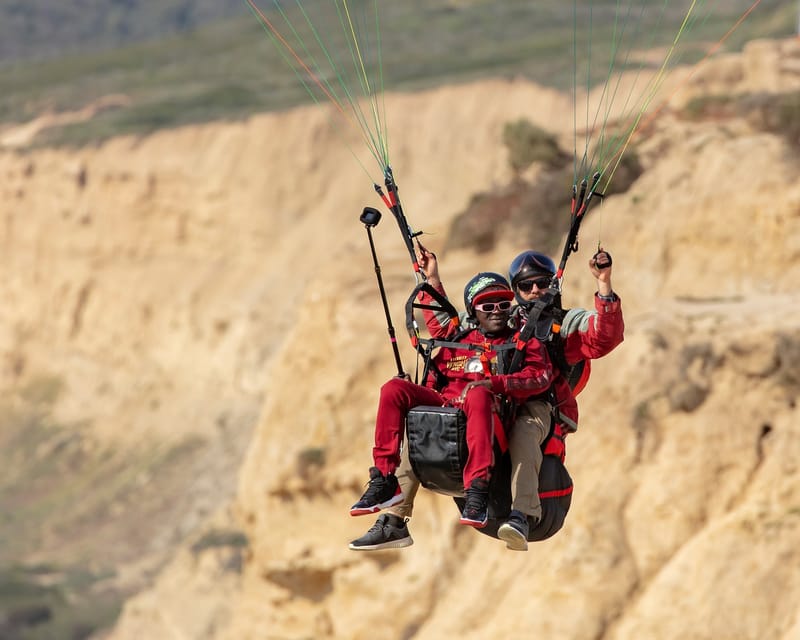HIKE & FLY TANDEM FLIGHT

Little Black Gliderport-Take a small trail hike to the top of this 300 ft launch, we will take a tandem flight from there depending on the wind either from top to bottom across the face overlooking the valley or if conditions are windy-longer for some thermals and more sightseeing on this amazing open space park with views all the way to the ocean. During your flight you will have your first taste and training in the sport that is paragliding.
Federal Aviation Regulation (FAR) Part 103
Hang glider and paraglider operations in the United States are governed by Federal Aviation Regulation Part 103 for ultralight vehicles.
According to FAR part 103, ultralight vehicles, including hang gliders and paragliders, are not required to meet FAA airworthiness certification standards (although manufacturers adhere to their own stringent standards). They must be used only for recreation or sport purposes, may only be operated during daylight hours, must yield right-of-way to all aircraft, and must stay at least 500 feet or further from clouds at all times. Please click the link to FAR part 103 above for the full list of restrictions and requirements.
Tandem Exemption
Another primary restriction of FAR part 103 is that ultralights can only be flown with a single occupant. To allow tandem flights
The exemption states that all tandem flights must be for training purposes only. This makes you a student pilot! In your flight training, whether it be just one flight or the beginning of a long hang gliding or paragliding career, the FAA requires that you understand certain information provided in FAA flight manuals. These materials are freely available online for review. Please read it prior to your lesson, and ask your instructor any questions you have before your flight.
FAA Handbooks for Pilots
All pilots are encouraged to review the following FAA manuals, the FAA Pilot's Handbook and the Powered Parachute Handbook. The FAA maintains these instructional materials as free online resources to provide essential information for all pilots, and content from both manuals is integrated into USHPA’s pilot training program as applicable.
FAA Pilot's Handbook - View Here
Chapters to review:
- 2: Aeronautical Decision-Making
- 4: Principles of Flight
- 12: Weather Theory
- 15: Airspace
- 17: Aeromedical Factors
Powered Parachute Handbook - View Here
Chapters to review:
- 1: Introduction to the Powered Parachute
- 8: Airspace Classification and Requirements
Ground School Training Manual
As a student member of USHPA, you are provided access to the Free Flight Pilot Ground School Training Manual (FAA materials consolidated in this document).


